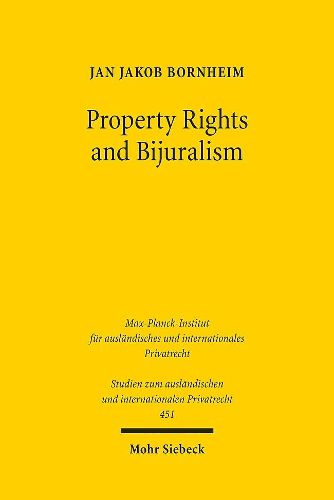Readings Newsletter
Become a Readings Member to make your shopping experience even easier.
Sign in or sign up for free!
You’re not far away from qualifying for FREE standard shipping within Australia
You’ve qualified for FREE standard shipping within Australia
The cart is loading…






Jan Jakob Bornheim analyses the hypothesis about the inherent efficiency of common law compared to civil law. He examines key commercial property law concepts (i.e., ownership and security interests in relation to movables) and determines the characteristics of each system with regard to these. Using the Canadian experience as a model, he then takes a close look at how the two legal systems interact, arguing that efficient interaction can take place on both vertical and horizontal planes. On the vertical plane, property law would be able to interact with higher-level law (e.g., federal law in a federal state); on the horizontal plane, property laws of different jurisdictions could interact through the conflict of laws. The author also contends that equitable property rights, including constructive trusts as a response to unjust enrichment, should be governed by property law choice-of-law rules.
$9.00 standard shipping within Australia
FREE standard shipping within Australia for orders over $100.00
Express & International shipping calculated at checkout
Jan Jakob Bornheim analyses the hypothesis about the inherent efficiency of common law compared to civil law. He examines key commercial property law concepts (i.e., ownership and security interests in relation to movables) and determines the characteristics of each system with regard to these. Using the Canadian experience as a model, he then takes a close look at how the two legal systems interact, arguing that efficient interaction can take place on both vertical and horizontal planes. On the vertical plane, property law would be able to interact with higher-level law (e.g., federal law in a federal state); on the horizontal plane, property laws of different jurisdictions could interact through the conflict of laws. The author also contends that equitable property rights, including constructive trusts as a response to unjust enrichment, should be governed by property law choice-of-law rules.